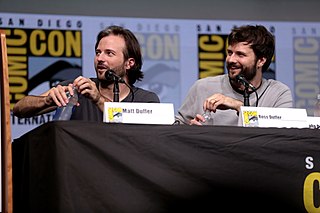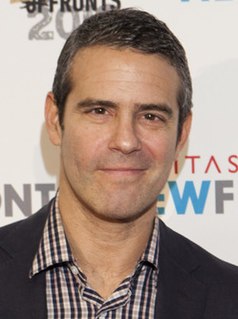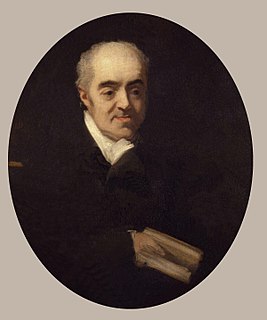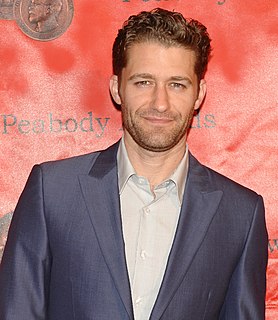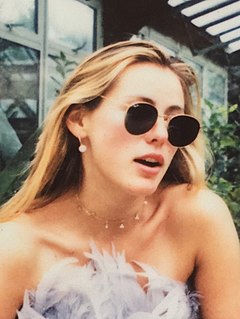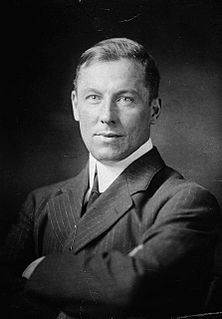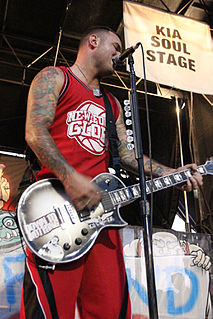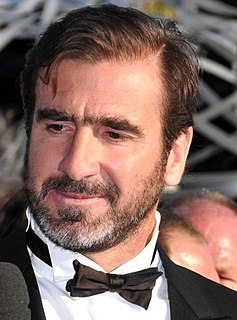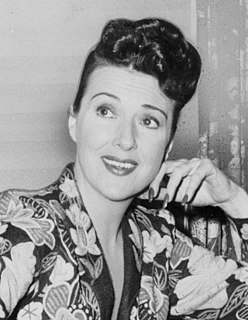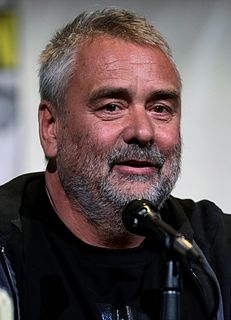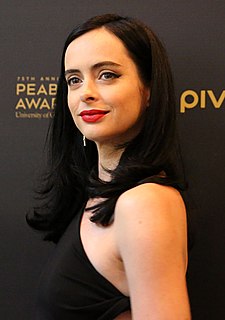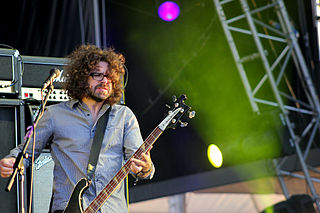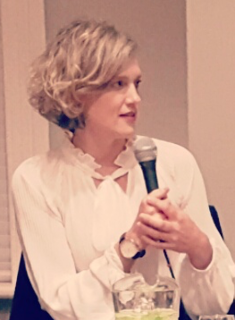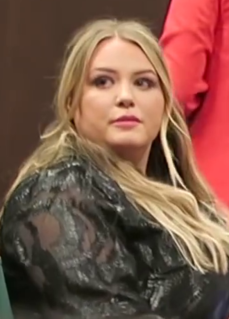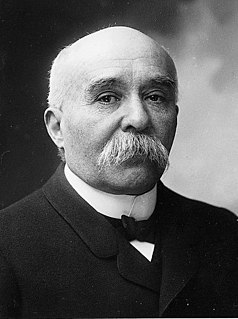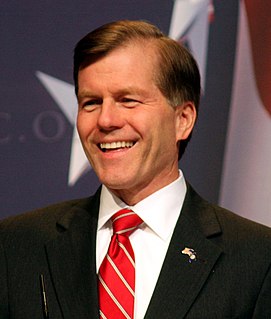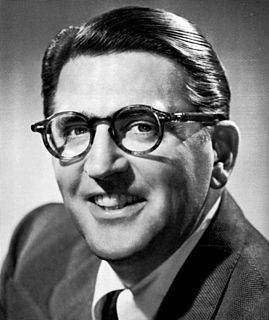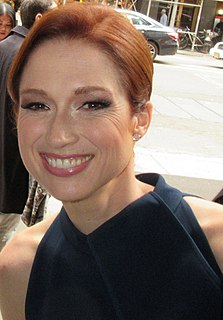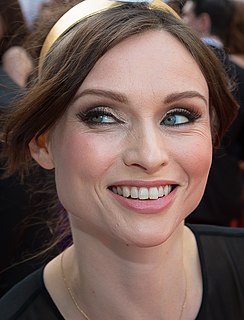Top 1200 Wrote Quotes & Sayings - Page 7
Explore popular Wrote quotes.
Last updated on December 25, 2024.
Just because I write some songs about bad women, though, that doesn't mean I hate women. I've written songs that show great love and respect for women too. Songs that talk about strong, upstanding women and their pain. I have women working on my music. They understand where I'm coming from. So does my mama. I always play my music for her before it comes out. Why do you think I wrote "Dear Mama"? I wrote it for my mama because I love her and I felt I owed her something deep.
I was reading Emily Dickinson and Edwin Arlington Robinson, but these weren't the poets that influenced me. I think Gwendolyn Brooks influenced me because she wrote about Chicago, and she wrote about poor people. And she influenced me in my life by giving me a blurb. I would see her in action, and she listened to every single person. She didn't say, "Oh, I'm tired. I gotta go." She was there, and present, with every single person. She's one of the great teachers.
I've been writing music since I was about eight. I would write sporadically. I wrote a lot of music in high school. I guess the oldest song on the record ("I Thought I Saw Your Face") is about eight years old. It's the old "I had my whole life to write my first album and six months to write the second one." I did, to some degree, but actually, a lot of the songs that ended up on the record, I wrote really recently. So it varies.
I wrote Her First American and I always say it took me eighteen years. It took me that long was because after about five years I stopped and wrote Lucinella. I got stuck; it was too hard to write. Lucinella felt like a lark. I wanted to write about the literary circle because it amused me, and I allowed myself to do what I wanted to do. It's just one of the things I'm allowed to do if I feel like it.
Before I wrote The Power of Now, I had a vision that I had already written the book and that it was affecting the world. I had a sense there was already a book somehow in existence. I drew a circle on a piece of paper and it said "book." Then I wrote something about the effect the book had on the world, how it influenced my life and other people's lives, and how it came to be translated into many languages affecting hundreds of thousands of people.
I either wrote at the end of the night or sometimes in the morning. Sometimes they were full entries, or others I just wrote notes about things that happened that day or funny thoughts I'd had. If I had a truly eventful day, I'd take the time to write it all down in great detail. I edited a lot of content out once it was all finished - there was way too much, and I didn't want to bore anyone. I like to keep the book [Superficial: More Adventures from the Andy Cohen Diaries] moving at a fast pace.
The biblical authors wrote of God's sovereignty over His world, and of man's experiences within that world, using such modes of speech about the natural order and human experience as were current in their days, and in a language that was common to themselves and their contemporaries. This is saying no more than that they wrote to be understood. Their picture of the world and things in it is not put forward as normative for later science, andy more than their use of Hebrew and Greek is put forward as a perfect model for composition in these languages.
I still don't like the word agnostic. It's too fancy. I'm simply not a believer. But, as simple as this notion is, it confuses some people. Someone wrote a Wikipedia entry about me, identifying me as an atheist because I'd said in a book I wrote that I wasn't a believer. I guess in a world uncomfortable with uncertainty, an unbeliever must be an atheist, and possibly an infidel. This gets us back to that most pressing of human questions: why do people worry so much about other people's holding beliefs other than their own?
I read a lot by female psychoanalyst Lou Andreas-Salomé, who wrote prominent biographies of Nietzsche, Rilke, and Freud because she studied with all of them. She had this unbelievable insight into contemporary psychoanalysis. What is so interesting is that she wrote her life, and she knew that her life would be about these men, and it didn't stop her from leading an incredibly successful academic career. But her strange self-awareness that she was going to bookmark these men's lives is really interesting to me.
I don't even think any stimulants really help writing. You talk to most guys and they say, "Hey. I wrote this." And they're out of their head or they had a few beers or a bottle of whiskey. You wake up the next morning, it's usually pretty crap. But you know Dylan Thomas wrote some great poetry. Brendan Behan. You never know but ultimately I'd say you have to get up early in the morning and you're usually sober when you write your good stuff; it's hard work. So alcohol, keep it for chilling out, fun, and having a good time. Not for work.
Sometimes he would advise me to read poetry, and would send me in his letters quantities of verses and whole poems, which he wrote from memory. 'Read poetry,' he wrote: 'poetry makes men better.' How often, in my later life, I realized the truth of this remark of his! Read poetry: it makes men better.
There are parts in albums where I wrote a lot of the lyrics. There are parts on albums where Steve wrote a lot of the lyrics, even albums where Steve did the majority of the lyric writing. Then there were albums like 'Coming Home' where I did most of the chorus lyric writing. But it was always split.
I loved them all the way one loves at any age -- if it's real at all -- obsessively, painfully, with wild exultation, with guilt, with conflict; I wrote poems to and about them, I put them into novels (disguised of course); I brooded upon why they were as they were, so often maddening don't you know? I wrote them ridiculous letters. I lived with their faces. I knew their every gesture by heart. I stalked them like wild animals. I studied them as if they were maps of the world -- and in a way I suppose they were.
I was with Brian De Palma at the time, and he said he wrote the role specifically for me. I don't know what that says about the way he saw me, since the role was of a castrating killer. Brian came one morning to the house, said "Here's your Christmas present." He wrote the character to have a Swedish accent, but since I couldn't pull that off, he switched it to French-Canadian. It was such a romantic time in my life. Everyone was young and passionate and convinced they were going to change film forever.
As for myself: I had come to the conclusion that there was nothing sacred about myself or any human being, that we were all machines, doomed to collide and collide and collide. For want of anything better to do, we became fans of collisions. Sometimes I wrote well about collisions, which meant I was a writing machine in good repair. Sometimes I wrote badly, which meant I was a writing machine in bad repair. I no more harbored sacredness than did a Pontiac, a mousetrap, or a South Bend Lathe.
The techniques are all means of dealing with one simple idea: She wrote it. (That is, the "wrong" person--in this case, female--has created the "right" value--i.e., art.)
Denial of Agency: She didn't write it.
Pollution of Agency: She shouldn't have written it.
Double Standard of Content: Yes, but look what she wrote about.
False Categorizing: She is not really she [an artist] and it is not really it [serious, of the right genre, aesthetically sound, important, etc.] so how could "she" have written "it"?
Or simply: Neither "she" nor "it" exists (simple exclusion).
Albert Camus wrote that the only serious question is whether to kill yourself or not. Tom Robbins wrote that the only serious question is whether time has a beginning and an end. Camus clearly got up on the wrong side of bed, and Robbins must have forgotten to set the alarm. There is only one serious question. And that is: Who knows how to make love stay? Answer me that and I will tell you whether or not to kill yourself.
I was writing everything. I grew up in Albany, New York, and I was never any farther west than Syracuse, and I wrote Westerns. I wrote tiny little slices of life, sent them off to The Sewanee Review, and they always sent them back. For the first 10 years I was published, I'd say, "I'm a writer disguised as a mystery writer." But then I look back, and well, maybe I'm a mystery writer. You tend to go where you're liked, so when the mysteries were being published, I did more of them.
With my two brothers, Jean-Marie and Joel, I wrote a two-page story and wanted to make some kind of movie. We met a French production company, called Why Not?, and the first name we put on the list was Ken Loach. It was a dream for all of us. So, we tried and we met Ken and Paul Laverty, his writer, and they read the two pages and were inspired by that to do something. Paul had the freedom to do his own story - and he wrote his own story, which is better than the one we'd written.
Olive Ann describes Sanna as 'a perfectionist and a worrier.' She is obsessed with the idea of finding happiness, and for her, as Olive ann wrote in her notes for the novel, 'happiness means being first with somebody, having perfect, loving children...The theme of Sanna is disillusionment,' Olive Ann wrote. 'Her life is the pursuit of happiness and perfection, but she finds happiness and perfection impossible to obtain-her idea of happiness is constant joy, no changes.
In his book Stand Ye In Holy Places, President Harold B. Lee wrote that one is converted when his eyes see what he ought to see, his ears hear what he ought to hear and his heart understands what he ought to understand. "And what he ought to see, hear and understand is truth-eternal truth-and then practice it. That is conversion," he wrote.
I wrote the entire history of Alpha because the space station was around for 500 years. I have 30 pages on the history of Alpha. Every ten years what happens. They took control and what happened. Every 80 years, they have to change the communication system because it doesn't work anymore. Some aliens come with new technology, and suddenly you can change the electric system. We wrote the entire story [for Valerian]
Here was a woman about the year 1800 writing without hate, without bitterness, without fear, without protest, without preaching. That was how Shakespeare wrote, I thought, looking at Antony and Cleopatra; and when people compare Shakespeare and Jane Austen, they may mean that the minds of both had consumed all impediments; and for that reason we do not know Jane Austen and we do not know Shakespeare, and for that reason Jane Austen pervades every word that she wrote, and so does Shakespeare.
On September 17, 1914, Erzberger, the well-known German statesman, an eminent member of the Catholic Party, wrote to the Minister of War, General von Falkenhayn, "We must not worry about committing an offence against the rights of nations nor about violating the laws of humanity. Such feelings today are of secondary importance"? A month later, on October 21, 1914, he wrote in Der Tag, "If a way was found of entirely wiping out the whole of London it would be more humane to employ it than to allow the blood of A SINGLE GERMAN SOLDIER to be shed on the battlefield!"
Regarding The Music Man, Jay Nordlinger wrote: The Music Man (for which Willson also wrote the lyrics) is an astonishing creation. It came in a spurt of brilliance. It is shot through with originality, verve, and-why not go all the way?-genius. People love it, can't get enough of it, can't stop performing it-and they are not wrong. For closing in on a half- century now, The Music Man has been performed continually, in every American city, town, and village, and in other parts of the world as well, not excluding Peking.
I would argue, for perspective's sake, that the arc of a really literary work is precisely that it both intensely reflects, and simultaneously transcends the conditions of its making. I would say that is the difference between literature and other kinds of writing. That is what the literary is - it ultimately doesn't matter what his circumstances were. And the thing that you were just saying about being sympathetic to Brontë and the fact that she could only write what she wrote when she wrote it... that's true. But look at that novel, which means so much to so many people.
When I was fifteen I wrote seven hundred pages of an incredibly bad novel - it's a very funny book I still like a lot. Then, when I was nineteen I wrote a couple hundred pages of another novel, which wasn't very good either. I was still determined to be a writer. And since I was a writer, and here I was twenty-nine years old and I wasn't a very good poet and I wasn't a very good novelist, I thought I would try writing a play, which seems to have worked out a little better.



